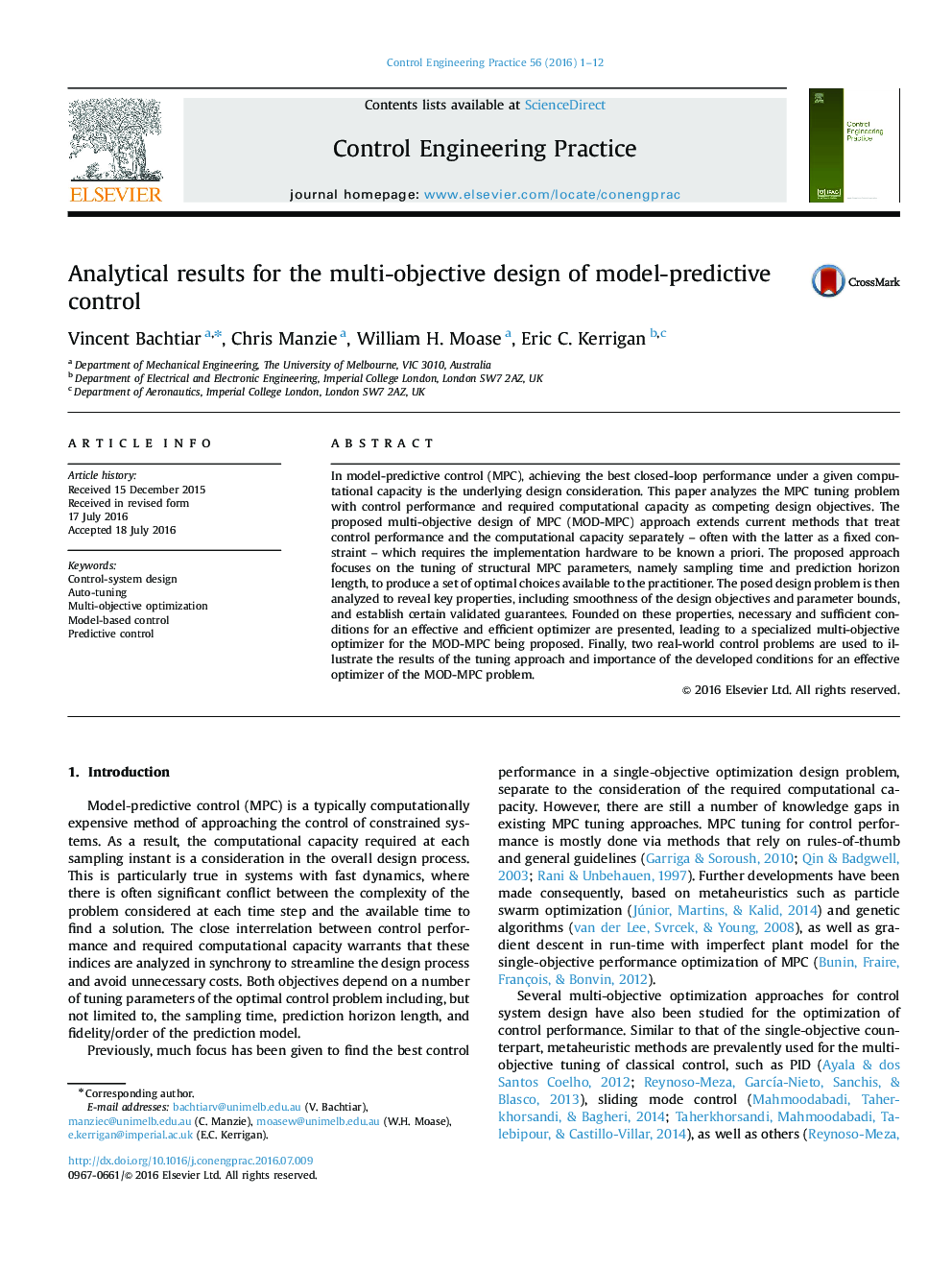| Article ID | Journal | Published Year | Pages | File Type |
|---|---|---|---|---|
| 699361 | Control Engineering Practice | 2016 | 12 Pages |
•A multi-objective design approach for model-predictive control (MPC) is proposed.•Theoretical results are established to develop an effective and efficient solver.•The proposed approach and the solver performance are demonstrated and validated.•For this application, the developed solver performs better than general benchmarks.•The approach allows a practitioner to design MPC optimally in performance and cost.
In model-predictive control (MPC), achieving the best closed-loop performance under a given computational capacity is the underlying design consideration. This paper analyzes the MPC tuning problem with control performance and required computational capacity as competing design objectives. The proposed multi-objective design of MPC (MOD-MPC) approach extends current methods that treat control performance and the computational capacity separately – often with the latter as a fixed constraint – which requires the implementation hardware to be known a priori. The proposed approach focuses on the tuning of structural MPC parameters, namely sampling time and prediction horizon length, to produce a set of optimal choices available to the practitioner. The posed design problem is then analyzed to reveal key properties, including smoothness of the design objectives and parameter bounds, and establish certain validated guarantees. Founded on these properties, necessary and sufficient conditions for an effective and efficient optimizer are presented, leading to a specialized multi-objective optimizer for the MOD-MPC being proposed. Finally, two real-world control problems are used to illustrate the results of the tuning approach and importance of the developed conditions for an effective optimizer of the MOD-MPC problem.
